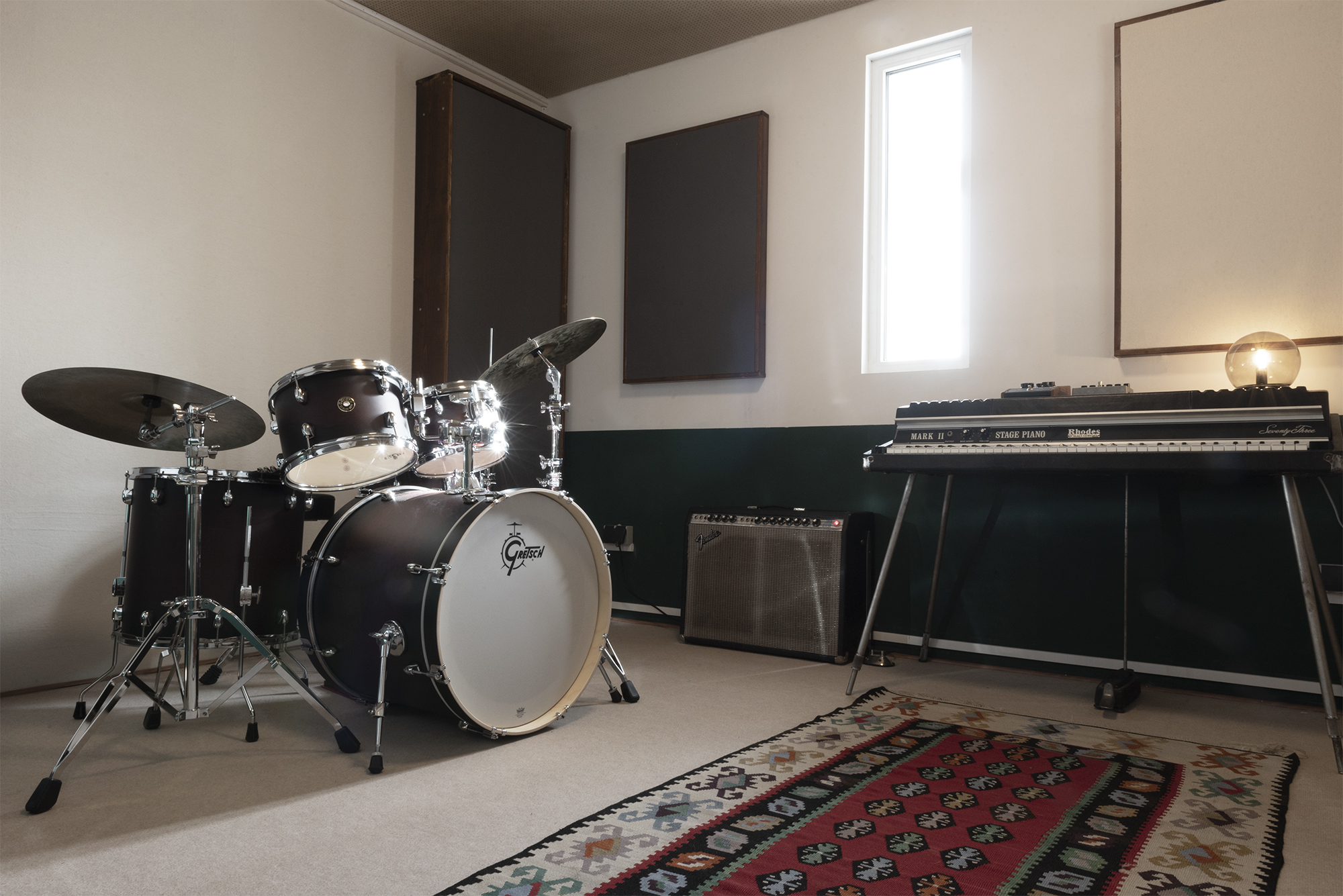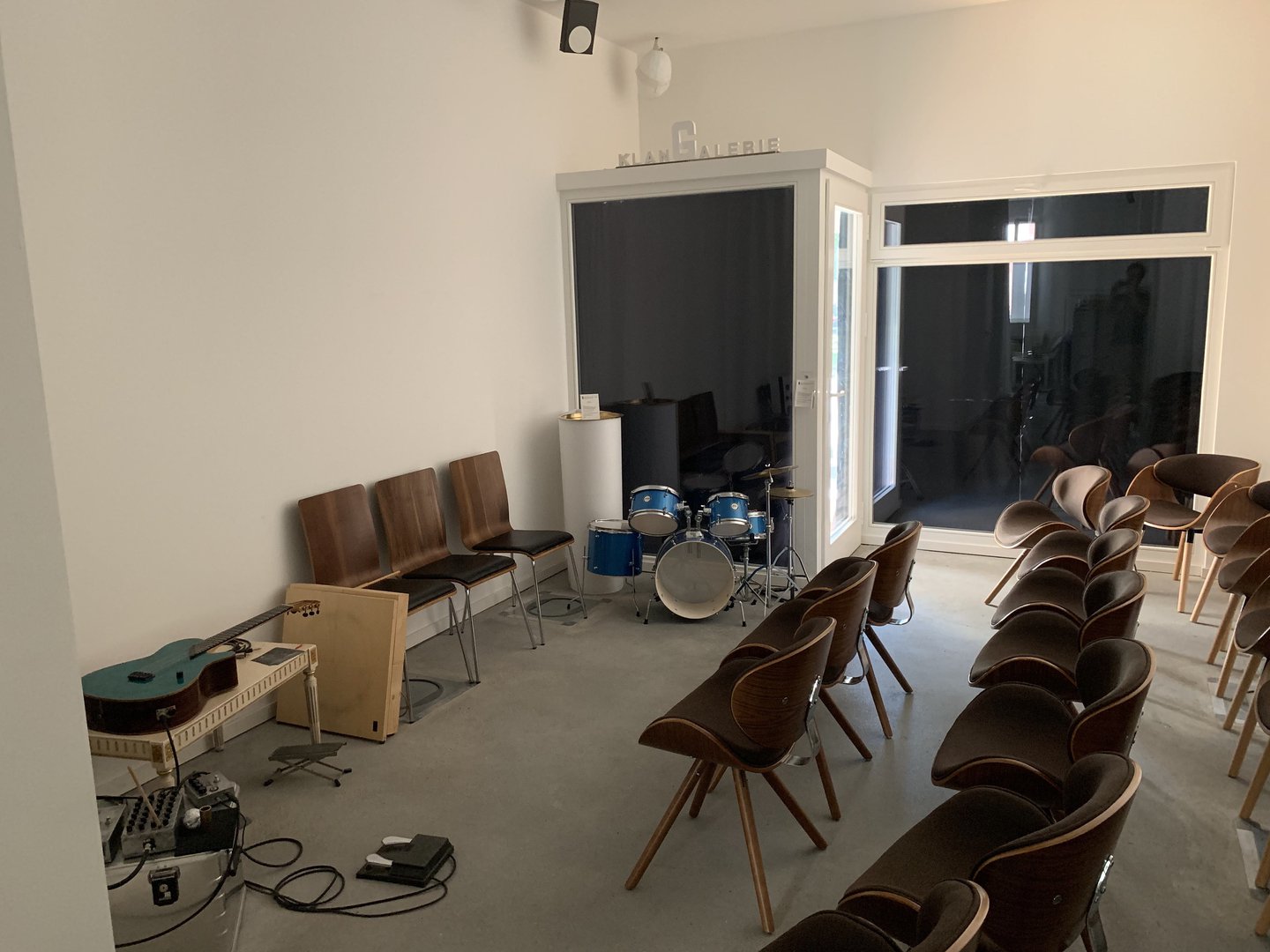Edoardo Longo Calgari’s beautiful Lichtenberg-based Soundrays Studio is the meeting point between his achievements as a music producer and co-founder of Berlin-based Cashmere Radio and his reputation for exciting mixing and recordings. His often danceable and frequently tropical blends of golden age pop, modern jazz and R&B have attracted a growing number of artist collaborations he carries out under the alias Ed Longo.
Longo’s projects change from day to day, but one certainty is that he’s equally immersed in his craft, whether he’s mixing his own stuff or recording for solo artists and bands. MT caught up with Longo to find out a little more about his music practice.
So, what goes on at Soundray Studios?
I like to create new sounds. We engage with music production but also sound for media and work with a network of professional session players. I especially like to mix tracks but actually we dabble in just about anything you can do with audio. It depends on the projects people hit me up with, including consultancy in mastering, distribution and copyright administration.
And the backstory to your space?
Soundrays Studio came into existence because I was already working as a freelancer, and always making use of different studios in different places and jumping around a little too much depending on the project. I needed a space where I could do all my work in a coherent way. There’s a recording room for acoustic instruments and outboard analogue set up for synthwork and analogue mixing, where you can get into post production. There’s a bit of everything.

Besides housing all your gear under one roof, it's a nice place to work?
It’s not a dark space like so many other studios. It’s a modern studio located on a large floor in a typical East German factory warehouse with lots of natural light. You have comfortable writing and production space and can record everything very well.
And you’ve been making music for some time now?
I got involved with music at a young age when I started to DJ on a cheap
Behringer mixer that I rocked to death with my friends. Shortly after we got some entry-level turntables and spent the whole day, every day hanging out with mates and playing records in Milan. I soon after started experimenting at home with a synthesizer. I moved to Berlin after finishing high school and got deeper and deeper into the music scene here.
But the story is a little more layered than that because my father is also a musician. He was doing jazz, pop and Italo disco in the 80s and 90s. I grew up hanging out in the studio and with artists coming around our place. I was at home with that milieu, but I didn’t develop an interest just because musicians were always around. I had to discover the whole music thing by myself to get closer to the family tradition.
Tell us about Milan
There is a big music scene in Milan but not a DIY spirit, like in Berlin. Most everything is established and commercialized. Even if you do parties with underground music you have to do it in an established context.
Besides the predictable comercial clubs, one of the established contexts is through Centri Sociali, which are self managed social centers that do interesting things and I can’t say too much bad against my city, since I left just around the time when I could have gotten involved in some more progressive spaces.
What makes Berlin different from Milan?
Considering the position where I am now, what I enjoy most is that here in Berlin there is a political climate that respects artists and musicians. As an artist in the cultural world you can do your job as a normal job. In many parts of the world it’s seen as a less important job. In the UK the government is actively trying to get artists to vocationally retrain towards “real jobs”. Artists in Italy were completely left in the cold during Corona. In Germany it’s not like and when there is a big respect and trust in the cultural industry you feel more appreciated. That wouldn’t be possible without political will working towards an environment conducive to creativity.
How do you see Berlin changing
Berlin is changing. Before Corona it was getting more difficult for venues and galleries to find places in the city center. Sadly, the whole Corona crisis gave a big chance to owners to get rid of people who were not profitable to them. To make culture you need space and to plan and make a project for 5 or 10 years and this is becoming impossible in the city center which is giving way to corporate structures. There will be a shift in the focal points where culture takes place.
Tell us what you see in MT
I’m a host, because I feel Music Traveler could provide a great way for artists to get together to produce and write music here. That's what music has always been about,so facilitating that process also facilitates creativity.
What facilitates your flow?
Being in a comfortable and well equipped room with other artists. The right space can get your ideas flowing and there’s nothing better than getting together with others to positive energy together and record it.
Tell us a bit about where you see the future of music
We’re coming from the last 15 years of music production where the shift moved to working alone as a bedroom producer over the internet. But I think there is such a value in getting together. There is such another value when you don’t have to work remotely. Now it’s time for people to get back together and make music from the same space.

